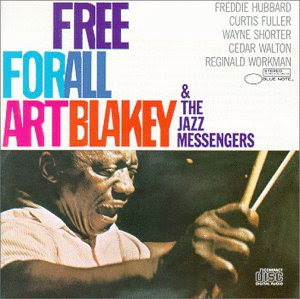I like that statement, it also aptly describe the mysterious quality in Shorter's sound, both as a writer and as instrumentalist.
Odyssey of Iska recorded in August of 1970 presages the work the work Wayne would do with Weather Report shortly there after.
It also has a heavy influence of Miles Davis' In a Silent Way and Bitches Brew, both of which Shorter participated on.
Iska is a suite in a sense: "Wind", "Storm", "Calm", "Depois do Amor, o Vazio" (After Love, Emptiness), and "Joy" chronicle a persons spiritual journey through trials and tribulation, then the gradual understanding and finding of truth along the way. Wayne points out some people never quite get there.
I believe the "journey" of trying to improve is actually finding God, "be still and know". Objectively observing your surrounding, without prejudice. Staying in control, and not reacting negatively to forces that try to control you is in a sense finding God.
Of all the jazz musicians I follow Wayne's thinking is pretty close to my own, I find his writing and interviews to be incredibly fulfilling. I have actually learned a few things from him beyond music.
I don't want to get bogged down in trying to describe this music track by track, an impossible task by the way.
Iska is a chamber jazz fusion album. Much more avant-garde than the rock element might make you suspect. "Depois do Amor, o Vazio" (After Love, Emptiness) is the most commercial track here, offering a lovely island dreaming bossa nove vibe.
The rest of the album is some rather challenging post-bop meets fusion styles, with ebbs and flows throughout. Never atonal to my ears, just different and unique. Other than Wayne's soprano sax and some tenor, guitarist Gene Bertoncini is the real standout. Bertoncini is not flashy at all here, but his playing is a compliment to the music.
Dave Freidman's Vibes and Marimba add to the mysterious "Shorter" sound. Ron Carter and Cecil McBee do things on bass, that well, I am not at all sure who's who.
These soundscapes are rewarding and demand repeated listens. My favorite track is the raucous propulsive "Joy" featured below.









